The Qingming Festival, also referred to as the Pure Brightness Festival, pays respect to ancestors and celebrates the warming weather of spring. It’s a time for honoring the past with a spirit of celebration that includes space for both reflection and renewal.
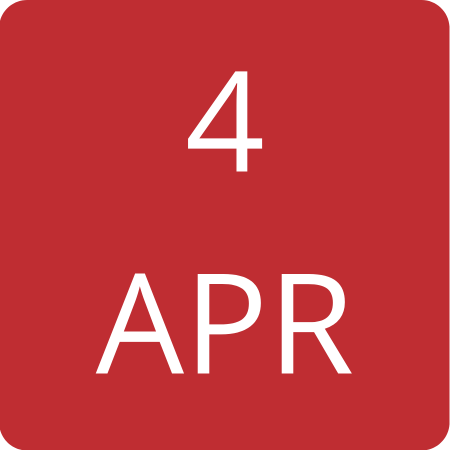
Mark Your Calendars
Qingming Festival 2024 is April 4, 2024. It takes place every year on April 4 or 5 on the first day of the fifth solar term of the Chinese calendar.
Here is a collection of easy activities, recipes and crafts with step-by-step directions to help your family observe the Chinese holiday commonly referred to as Tomb Sweeping Day.
 The Basics
The Basics
Celebrating the Qingming Festival has two halves, equally balanced between sadness and happiness, death and rebirth. Qingming is generally observed quietly among family by visiting the gravesites of relatives and enjoying time outdoors. It’s a wonderful time to fondly share stories about ancestors, Chinese or not, and to get the kids outside to hike, fly kites or plant seeds.
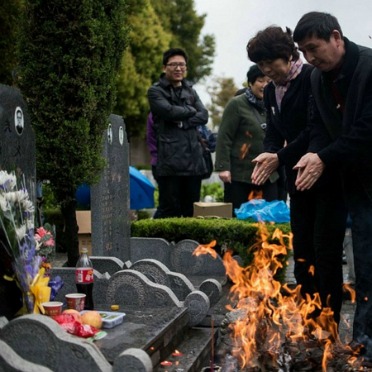
History & Folklore
The Qingming Festival occurs as spring blooms, making the holiday an interesting mix of somber tomb sweeping and celebratory outdoor activities. It’s one of the two big annual festivals designated for the dead — the other is the Hungry Ghost Festival in the fall. Read More »
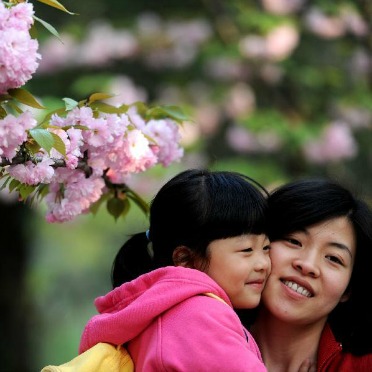
The Origins of Qingming Festival Traditions
The Qingming Festival’s name refers to the arrival of spring (literally “pure” and “bright”), providing a refreshing counterbalance to the solemn task of tomb sweeping. Fly kites, plant seeds and visit the park to tap the holiday’s spirit of rejuvenation and growth. Read More »
 Activities
Activities
The most visible Qingming Festival activity revolves around tomb sweeping, the ritual cleaning of gravesites to honor a family’s ancestors. People care for their relatives in the afterlife by visiting at the cemetery, refreshing their tombstones and making offerings of food, incense and joss paper. Once tomb sweeping is complete, families picnic at the cemetery and commonly spend the afternoon enjoying outdoor activities in the early blooming days of spring.
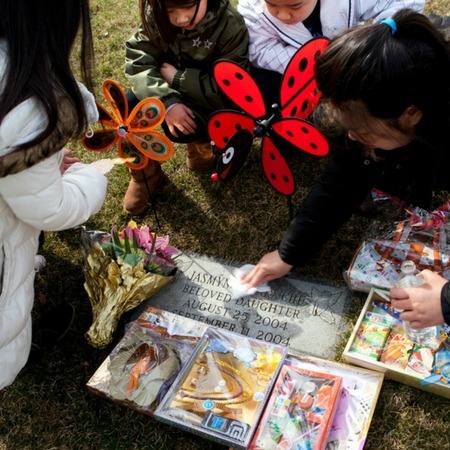
How to Plan a Tomb Sweeping Ceremony
Tidying family grave sites is the most important Qingming Festival tradition, a respectful family obligation that gets to the heart of Chinese filial piety. Symbolically, a clean gravesite lets your relatives know that they remain in your thoughts. Read More »
 Recipes
Recipes
Unless you’re observing the customs of the Cold Food Festival, there aren’t many traditional foods specifically associated with the Qingming Festival. Because the holiday focuses on honoring family ancestors, the culinary focus is placed on making their favorite dishes. The result is an emphasis on homestyle family favorites, meals that can be transported easily and enjoyed outside after the tomb sweeping ceremony.
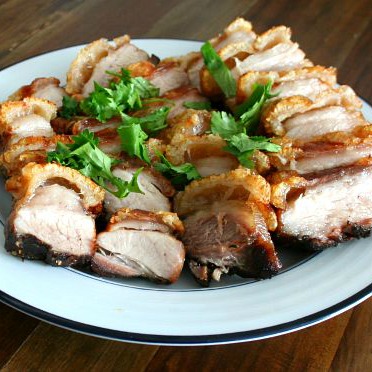
How to Make Roast Pork
Roast pork, along with roast duck and char siu, is widely available from Chinatown BBQ shops. It’s a familiar symbol of neighborhood living, comfort food that’s perfect to serve at a Qingming Festival picnic. Read More »
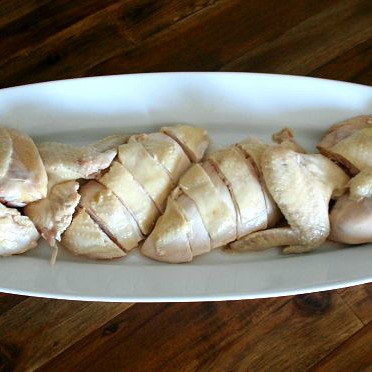
How to Make a Whole White Cut Chicken
A whole white cut chicken is a staple of Chinese reunion meals, which makes it especially fitting to serve during the Qingming Festival. The chicken represents happiness, health and purity, while serving it whole symbolizes completeness and family unity. Read More »
 Crafts
Crafts
Working with joss paper during the Qingming Festival is an easy way to introduce the meaning of ritual paper offerings to your kids. Burning ceremonial joss paper is meant to care for ancestors in the afterlife and send them the luxuries they lacked while living.
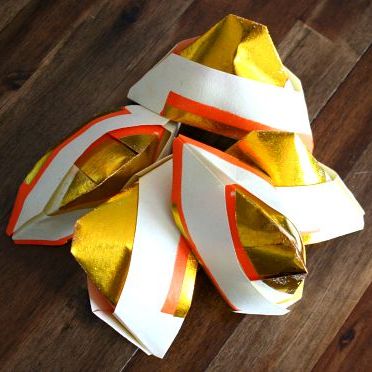
How to Fold Joss Paper Ingots
Folding joss paper around the kitchen table can help you explain the importance of sending money, food and other supplies to ancestors who have passed away. Use our guide to fold joss paper into the gold ingots that were used as ancient Chinese currency. Read More »
 Buying Guides
Buying Guides
Prior to the Qingming Festival, you’ll want to pick up joss paper, incense sticks and food for your ceremonial offerings, but that’s all you’ll really need. The Qingming Festival is a quiet, family-focused holiday without elaborate decorations or public celebrations.
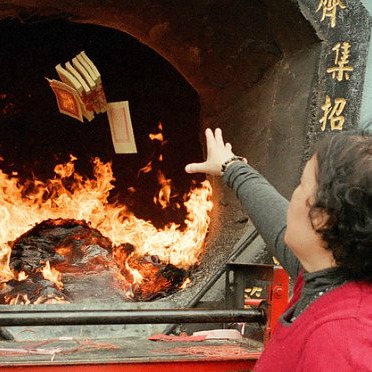
How to Buy Joss Paper
The Chinese burn joss paper to send ancestors money and material goods in the afterlife. Use our guide to learn how to use joss paper during the Qingming Festival, along with how to shop for the three most common types available. Read More »
I hope you have a great time celebrating the Qingming Festival this year with these easy activities, recipes and crafts. Please comment below if there are additional resources you would like to see added to the site!
HT: Photo by The New York Times.
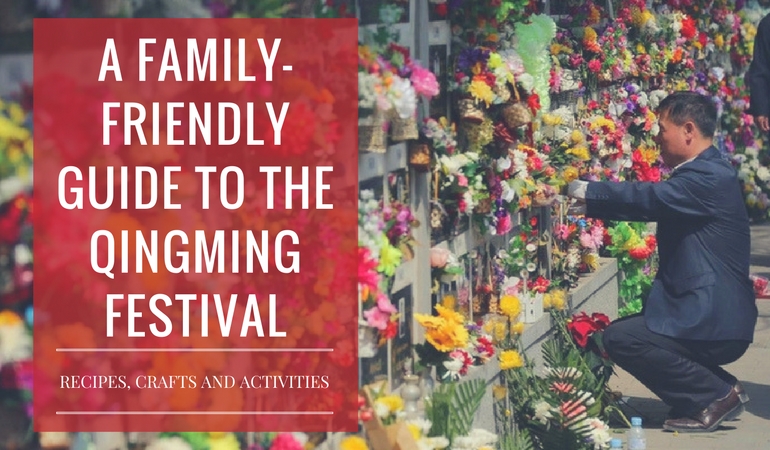

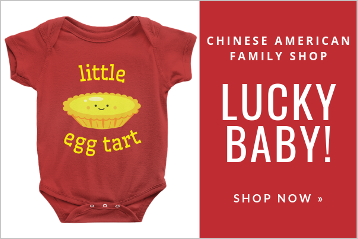

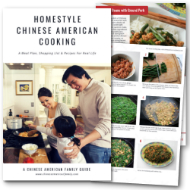
Raymond
There are getting less and less Chinese family having their loved ones buried, especially in the cities. I always go to the beach with my mum and sister on Qing Ming festival. We go there and scatter some flower petals at the sea. We just remember our beloved ones and pray for their souls.
In fact, there are also some Chinese families who have their loved ones buried in my hometown. However, they don’t want to perform any Qing Ming memorial anymore as they don’t see it as necessary or their religion forbids them.
Wes Radez
Thanks for sharing your experience, Raymond. This balance between new and old is something I hear about frequently when discussing Qing Ming traditions. What cities are your referring to? In China or the United States? ~Wes
Catherine
My family still performs “rites” during QingMing here in the US. B/C our family (both maternal and paternal) has always lived “away” from the ancestral graves (even before immigrating to the US), the rites were always important.
The weekend of or before QingMing we make the ChaoAoGui and Spring Egg Rolls. My dad’s side of the family always bought these staples in shops/practiced cold food traditions. My mom’s side of the family believes cooking brings the family closer before grieving. (Naturally my family cooks during this holiday) – both sides believe this is the “only” time to remember and re-grieve lost family.
Our rites for the day of QingMing: We dig out the paper offerings from storage (replenishing at the stores as necessary), clean out the burning vessels and sweep off the front steps. Near dusk we light 3 incense (no more, no less regardless of extra attendees) and pray to my paternal family plaque. Then burn the paper offerings on the front porch. We watch everything burn out before sealing the vents on the vessel then head inside for dinner. (The eldest male of the family is responsible for bringing in the burning vessel – all the ashes stay in the vessel.)
Nothing formal, but it’s a strict practice we have always upheld (unless someone is desperately sick…in which case, we do NOT burn paper offerings – to discourage visiting ghosts? ?)
Wes Radez
Hi Catherine, welcome to the site and thank you for sharing your precious family tradition. It’s wonderful to read your reflection. ~Wes
Juan
Very Useful
Wes Radez
Quite welcome, Juan. Thanks for stopping by! ~Wes
Ian
thanks for helping me with my essay
Wes Radez
You’re welcome, Ian. Glad you found what you needed! ~Wes
Marya
Thank you for sharing this. I teach English to Chinese nationals and I enjoy learning about the different traditions and holidays that my students celebrate.
Wes Radez
That’s great, Marya. I’m glad that you’ve made that effort! ~Wes
Sandie Hall
This posting was both beautiful and explanatory. We were attending a family funeral yesterday and in the next row began the Chinese portion of the cemetery. (Why they are separate I have no idea!) There were multiple families burning joss paper and sweeping their loved ones plots. Such a time honored tradition and I’m glad to see it was still being carried out in Union, NJ. It was a beautiful sunny, mild day, although windy, day. My cousin shared this post for us to read. Traditions are our ties to the past, long may they live!
Wes Radez
Hi Sandy, thanks for your kind words and for sharing your experience. I called the cemetery today to inquire and learned that there are dedicated sections available for different faiths and nationalities to provide space for various traditions, if desired by the family. ~Wes
MAS
Thanks for sharing such a forum.
Im an Australian but chinese born and grew up most of my life in Sydney. Although I grew doing these traditional festivities, I never knew what the history was about them, nor were interested.
It is only now, that as I get older and with young children, that I have re-connected with my heritage more to be able to explain its significance to my kids.. and more so for their homework! : p
Wes Radez
Wonderful! So glad the site could help you! ~Wes
Harmony
Thank you for the information. I came across your website after reading the short story entitled ‘The Paper Menagerie’ by Ken Liu which I will be studying with my secondary school pupils as I wanted to know more about Qingming.
Wes Radez
Wonderful! Thank you for checking in, Harmony. ~Wes